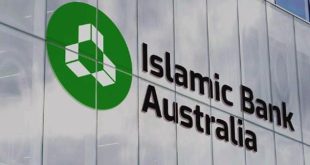© Islamic Finance Today
The recent outing of two of the backbones of the recent Islamic Finance phenomena in the Mid East (organised Tawarruq and some types of Sukuk) as possibly Haraam has thrown the cat amongst the pigeons. Now, all of sudden – well meaning Islamic bankers and their customers are finding themselves stuck in the middle. Are they dealing with the Halal or the Haraam? And what now for the future – as it is clear that the ‘innovative’ progress of the last few years have been reset (product wise, Islamic finance is now where it was many years ago).
Sure, some Islamic Financial Institutions (IFI’s) are going to ignore the recent fatwa against organised Tawarruq (as they did with Inah) and will press on with issuing dubious (in terms of the Sharia) Sukuks and other similar veined products & services – but lets face it, these IFI’s aren’t really Islamic in the truest sense and will be regarded as what they actually are: wolves in sheep’s clothing specifically set-up to separate uninformed Muslims from their cash.
But not all IFI’s are like that. Many are trying to come to terms with their ‘Islamicity’ and are struggling to strike the right balance between providing a Halal service and running a profitable operation. However, the dearth of genuinely acceptable products & services – coupled with the wildly inconsistent fatwas being issued by scholars with different perspectives of the law means that such a struggle will only deepen and make life much more difficult for the industry as a whole.
But is this such bad news? Is there in fact a shining gold lining to this overcast cloud?
THE 2 TYPES OF ISLAMIC FINANCE:
The current Islamic Finance industry is split into 2 separate distinct groups, being 1) Ibaha-based Islamic Finance and 2) Sunnah-based Islamic Finance
Ibaha-based Islamic Finance – this is based on the permissibility precept and is probably 90% of current Islamic financial activities and will remain dominant for the foreseeable future. However, it has an increasing chorus of critics because of its similarity with modern Riba-based financial activities and often highly questionable product offerings. Ibaha-based Islamic Finance will continue to be accused of providing conventional interest-based finance, dressed up as Islamic – and this could seriously damage the long-term prospects of the industry.
Sunnah-based Islamic Finance – this is REAL Islamic finance in the sense that it is ‘Islamic in nature & spirit’ and not just ‘permissible’ and is based on the trade & economic elements of Retrofiqh (the original legal rulings/principles/actions of the Prophet Mohammed, pbuh). In essence, we are talking about doing what the prophet and his immediate followers did and clearly recommended/approved of in terms of finance, trade and business. The activities in this sector are limited but are truly grounded in the Islamic tradition and are therefore Taqwa resolute. This is not a backward step – but simply a distinction between permissible finance (which allows sometimes contentious activities such as organised Tawarruq and Inah) and true Islamic finance (which focuses more on emulating the business activities and counsel of the prophet and his undeviating companions and Taqwa – not just profit – based modern business and finance solutions).
The premise of this distinction is to highlight the growing belief amongst Islamic finance practitioners & customers that the real future of Islamic finance is not more innovation along the lines of interest-based finance, but in the past: taking Sunnah-based activities, making them applicable to the modern era and assimilating & converging it with the Halal elements of conventional finance so that it becomes an indistinguishable part of the mainstream global economy. Islam, after all, is for the whole of humanity.
The entrepreneurial impetus of the main developed countries (Venture Capital, Private Equity, Venture Philanthropy, etc) is surprisingly aligned with some of the primary ethos of Sunnah-based Islamic Finance and thus, IFI’s have a great opportunity to lead the way in establishing real Islamic Finance – thereby enhancing their position in this fundamentally global industry.
One way this can be achieved is by using modern English terminology instead of Arabic ones to describe Sunnah-based Islamic Financial activities, as breaking the language barrier is one of the key ingredients required to successfully enter new markets because it enables Sunnah-based Islamic Financial transactions to be identified with modern capitalist ones (and this aids in propagating Halal transactions across both Muslim and non-Muslims spheres).
For instance; if we go to a traditional western investment bank and say we want to do a Musharakah deal, we might get shown the door pretty fast even if we have a really good deal for them, whereas if we say we want to do a venture capital/private equity deal – we might get shown the board room – although the deal is one and the same (see: Wittgenstein’s philosophy of language).
Some example of language parity:
The terms: “Procurement Services” is the same as the original, spot-payment based Murabahah (which is mentioned in verse 275 of Al-Baqarah and it is clear from this verse that God has defended it – the original, traditional Murabaha, not the current artificial/financing Muajjal-Murabaha hybrid – and is therefore the most virtuous of all business activities in religious terms).
The terms: “Investment Management, Business Representative/Agent & Outsourced Business Process” are the same as Wakalah (this is the way the prophet started in business himself, as a wakil – business agent of Khadija, r.a. and is therefore the 2nd most virtuous of all business activities in religious terms).
The terms: “Venture Capital, Joint Ventures, Private Equity, Venture Philanthropy, Social Enterprise” are the same as Mudarabah & Musharikah, etc (this is where huge growth can be achieved in new non-Muslim markets).
The terms: “Social Security Contribution (or Social Levy), Grants & Charity” are the same as ZakahA tax that is the duty and social obligation of every Muslim. This as the fourth Pillar of Islam More, Qard Hasan and Sadaqah (which are the prime components of the Muslim welfare system). If we can focus and direct the considerable ‘charity’ wealth of the Muslims, we can achieve momentous positive change – and the impact of this change will generate the momentum to positively change the socio-political sphere, potentially resulting in more Islam focused nations and governments.
The above are some areas where Sunnah-based Islamic Finance can achieve a huge level of convergence & assimilation with the non-Islamic financial world. It is the real future of Islamic Finance, as it will allow it to stay grounded in its roots (and to maintain its form AND substance) and yet successfully expand into new territories & new markets.
And this is very important because if IFI’s persist in purveying just Ibaha-based products & services – they will continue to be accused of being “wolves in sheep’s clothing” (i.e. providing conventional interest-based finance, dressed up as Islamic), and this could seriously damage the long-term prospects of this unique industry.
Post Disclaimer | Support Us
Support Us
The sailanmuslim.com web site entirely supported by individual donors and well wishers. If you regularly visit this site and wish to show your appreciation, or if you wish to see further development of sailanmuslim.com, please donate us
IMPORTANT : All content hosted on sailanmuslim.com is solely for non-commercial purposes and with the permission of original copyright holders. Any other use of the hosted content, such as for financial gain, requires express approval from the copyright owners.
 Sri lanka Muslims Web Portal Sri Lanka Muslims News Center
Sri lanka Muslims Web Portal Sri Lanka Muslims News Center
 Donate
Donate


